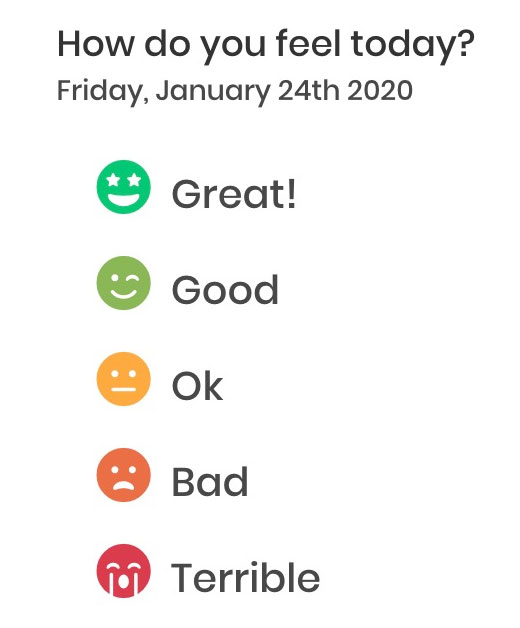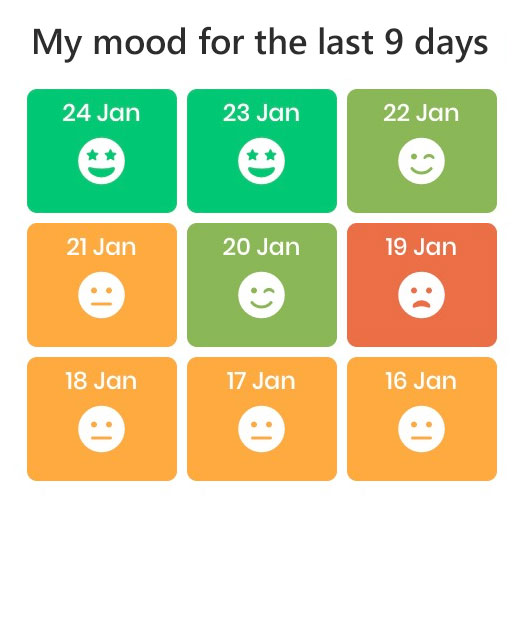Mood tracker - why I use one every day
I travel a lot. I mean a lot.
I also keep track of how I feel every day using a mood tracker. It's simple, just one click on the emoticon that closest resembles how I feel on that particular day. I've been doing that for more than a year now.
What's interesting about this is what happens when I go back and look at the data. The clusters of when I was in the best mood directly correlate with the times when I am most productive. The times when I have done my best work.


It's fascinating to me to link different aspects of your life and see the relationships that they have to one another. By tracking your mood over time with how much work you outputted and what you wrote in your journal on a particular day or in a particular location. You can discover real insights about who you are as a person and what your specific levers of happiness are.
The levers might not be what you expected. For me they weren't. There is great power in knowing what those levers are. Not power in the traditional sense but personal power to affect your own mood and situation, or mood and productivity. Now that I do know what my specific levers are and where in the world I am happiest, I feel much more in control of my life. Solely by controlling me and my environment.
It's not about money or things. It's about freedom, tranquility, experiences, and connection. I completely understand that that sounds trite. I get it.
Freedom does require money of course, depending on your own personal definition of freedom.
Tranquility for me is just headspace. Not having to think about stakeholders and who I might be letting down. That's why are started Angstrom in the first place. It was too much for me to deal with to be the person who so many people depended on. But a year ago I couldn't articulate that. It was just drop and roll. Away from it all.
Experiences and connection are fairly self-explanatory but they are more important to me that I realised when I started on the Angstrom journey.
When I built the "History" analysis section of Angstrom I did not know that it would provide me with insights that would actually make me a happier person. When I started building it, it was just the list of things that I spent time working on for a particular day. It made sense to also show how I felt on that day. Eventually, I added my journal entries as well. This was when the magic happened. The journal entries gave context to the feelings and that days output. It was that context that allows me to go back and re-live those times for good and for bad. But in a more dispassionate and analytically mind, now that I have the perspective of time.
Conclusion
There are many mood tracker apps out there. They give you a list of moods and you simply select the one closest to how you feel on that particular day. The reason that having a mood app built into Angstrom is different, is context.
Do not underestimate the power of linking small seemingly insignificant data points such as how you feel on a particular day with other aspects of your life. Whether those aspects are objective or subjective doesn't matter. You as the constant binds that data together.
Looking at these things holistically can really give you insights into who you are and how you tick. If you study the data you may discover the patterns and levers that you can use to help you design your life and be the best that you can be.
Even if you don't have all the context though that you get from the mood journal in Angstrom, I highly recommend that you start using a mood tracker app or an optimism app to track your mood of the day. You will learn something about yourself and it takes very little effor to do.